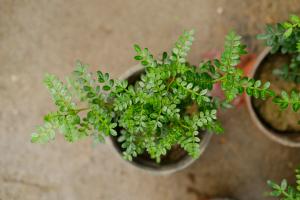Introduction
Plants are an essential part of our ecosystem and their growth is vital for our survival. One of the crucial factors that affect plant growth is the amount of water they receive. In this article, we will explore the relationship between the amount of water and plant growth height.
The Importance of Water for Plant Growth
Water is an essential nutrient for plants. It is required for the process of photosynthesis, which is the process by which plants make food. Without adequate water, plants cannot produce enough energy to grow and thrive. Water also helps transport nutrients from the soil to the plant cells and provides support for the plant structure.
The Effect of Water on Plant Growth Height
The amount of water a plant receives directly affects its growth height. When a plant receives adequate water, its cells are turgid, which means they are swollen and firm. Turgid cells provide support for the plant structure and help it grow taller. When a plant does not receive enough water, its cells become flaccid, causing the plant to wilt and droop. As a result, the plant's growth is stunted, and it becomes shorter than it would have been if it had received enough water.
The Optimal Amount of Water for Plant Growth
While water is necessary for plant growth, too much water can be detrimental to a plant's height. Overwatering a plant can lead to root rot, which is when the plant's roots start to decay due to excessive moisture. When a plant's roots are damaged, it cannot absorb nutrients properly, causing the plant's growth to be stunted. The optimal amount of water for plant growth varies depending on the plant species, the climate, and soil type. In general, plants require water when the top inch of soil is dry to the touch.
Strategies for Maintaining Plant Growth Height with Water
To maintain optimum plant growth, it is essential to monitor and regulate the amount of water plants receive. One way to ensure that a plant receives adequate water is to water it deeply, allowing the water to penetrate the soil and reach the plant's roots. Another strategy is to use mulch, which helps retain moisture in the soil, reducing the need for frequent watering. Additionally, it is essential to avoid overwatering by checking the soil regularly and only watering the plant when necessary.
Conclusion
Water is one of the critical factors that affect plant growth height. Adequate water ensures that a plant's cells are turgid, providing support for the plant structure and allowing it to grow taller. However, overwatering can lead to root rot and stunted growth. To maintain optimal plant growth, it is essential to monitor and regulate the amount of water plants receive and follow strategies such as deep watering and using mulch to ensure healthy growth.

 how many times do yo...
how many times do yo... how many planted tre...
how many planted tre... how many pine trees ...
how many pine trees ... how many pecan trees...
how many pecan trees... how many plants comp...
how many plants comp... how many plants can ...
how many plants can ... how many plants and ...
how many plants and ... how many pepper plan...
how many pepper plan...































